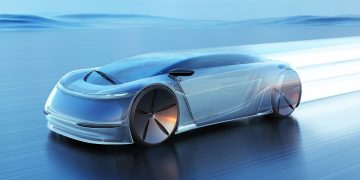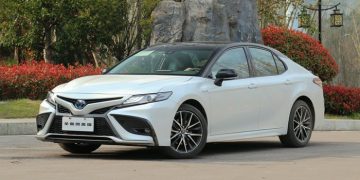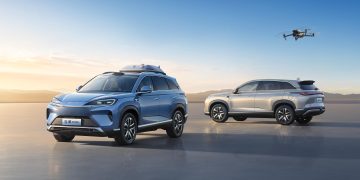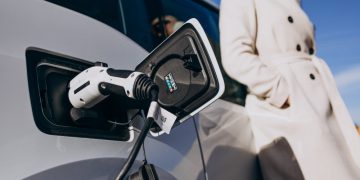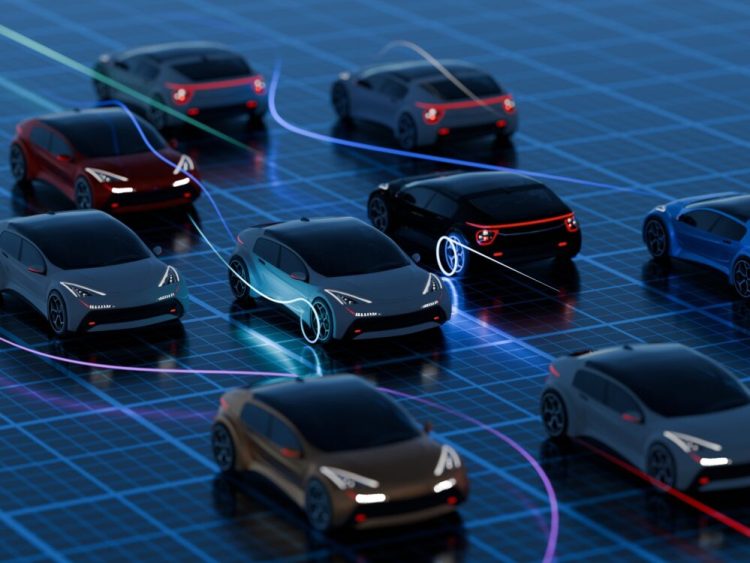Introduction:
The automotive industry is experiencing a technological revolution, and electric vehicles (EVs) are at the forefront of this transformation. As the world shifts toward cleaner, more sustainable transportation, electric vehicles are gaining widespread adoption. However, what could truly cement the future of EVs is the integration of smart technologies—from autonomous driving and connectivity to artificial intelligence (AI) and advanced infotainment systems.
The rise of intelligent mobility and smart vehicles is changing the way we think about transportation. With electric vehicles already seen as the cleaner, more sustainable alternative to traditional gasoline-powered cars, the next step is to integrate intelligent features that will not only enhance the driving experience but also improve safety, efficiency, and convenience.
As artificial intelligence, machine learning, and Internet of Things (IoT) technologies continue to advance, it is increasingly possible to envision a future where electric vehicles are not only the environmentally preferred option but also the technologically superior choice—the “standard” vehicle in the automotive market.
In this article, we will explore the ways in which smart technologies are shaping the future of electric vehicles, and whether these innovations are enough to make EVs the default choice for consumers and manufacturers alike.
1. The Rise of Smart Technologies in Electric Vehicles
A. Autonomous Driving: The Future of Mobility
The development of autonomous vehicles (AVs) is perhaps the most transformative technological leap in the automotive industry. While autonomous driving is still in its early stages, it holds significant promise for both the EV and smart technology landscapes.
- Self-Driving Capabilities: Autonomous driving relies heavily on artificial intelligence (AI), machine learning, and sensors like LiDAR, radar, and cameras to enable vehicles to navigate without human intervention. By integrating these technologies with electric vehicles, automakers can create vehicles that are not only emission-free but also capable of offering a completely hands-free driving experience. Companies like Tesla, Waymo, and Cruise are already leading the way in this space.
- Enhanced Safety Features: Autonomous driving promises to reduce traffic accidents, human error, and driver fatigue, which are among the leading causes of crashes. Smart technologies, such as AI-powered collision detection, lane-keeping assist, and real-time traffic analysis, could make EVs significantly safer than traditional vehicles.
- Sustainability and Efficiency: The combination of autonomous driving and electric mobility can lead to greater efficiency. Autonomous vehicles are programmed to optimize driving patterns, reduce braking, and accelerate smoothly, leading to lower energy consumption and longer battery life. This is a crucial aspect of EV technology as it directly impacts the range and performance of electric vehicles.
B. Connectivity and Digital Ecosystem
Another key feature that is becoming increasingly prevalent in both electric vehicles and the broader automotive market is connectivity. As the world becomes more interconnected, vehicles are no longer just modes of transport—they are becoming part of a larger digital ecosystem.
- Smart Infotainment Systems: Many modern electric vehicles now come equipped with smart infotainment systems that include features like voice recognition, navigation, real-time traffic data, and over-the-air software updates. These systems allow drivers to interact with their vehicles in ways that were once unimaginable, such as by controlling vehicle settings or accessing apps with simple voice commands. This level of connectivity increases the overall user experience, making EVs not just cleaner but smarter and more intuitive.
- Vehicle-to-Grid (V2G) Integration: Electric vehicles can also be part of the larger smart grid ecosystem. With V2G technology, EVs can be used as mobile energy storage units. During off-peak hours, EVs can feed energy back into the grid, helping to balance demand and reduce energy costs. This interaction between vehicles and the broader energy infrastructure has the potential to significantly change how we think about energy consumption and storage.
- Predictive Maintenance: Smart vehicles can also help reduce downtime through predictive maintenance features. By continuously monitoring vehicle systems, EVs can alert owners when maintenance is needed before problems become serious. This will result in more efficient vehicle operation and lower ownership costs.
2. Smart Technologies Making EVs More Attractive to Consumers
A. Enhanced Driving Experience and Personalization
One of the key drivers for widespread adoption of electric vehicles is the enhanced driving experience that smart technologies provide.
- Intelligent Climate Control: Many electric vehicles now feature smart climate control systems that automatically adjust the interior temperature based on personal preferences or environmental conditions. Additionally, remote pre-conditioning allows drivers to warm or cool their vehicles before even getting inside, increasing comfort and convenience.
- AI-Powered Driving Assistance: Intelligent systems in EVs provide real-time data to enhance the driving experience. For instance, adaptive cruise control, automatic parking, and traffic jam assist use AI and sensors to make driving easier, safer, and less stressful. These features will likely become standard in electric vehicles as they evolve into fully autonomous, intelligent machines.
- Seamless Integration with Consumer Devices: The ability to integrate with smartphones, wearables, and smart home devices makes driving an EV a more connected experience. Imagine arriving at your home after a long day, and your vehicle automatically syncs with your home’s energy system to begin charging during off-peak hours to save money. This seamless interaction between vehicles and other aspects of consumers’ digital lives could make EVs more appealing.
B. Range Anxiety and Battery Management
One of the major concerns with electric vehicles has always been range anxiety—the fear that the vehicle will run out of charge before reaching a destination. However, smart battery management systems are significantly improving the situation.
- Improved Range through AI: By using AI to predict driving patterns, electric vehicles can optimize energy consumption and extend driving range. AI can adjust acceleration, braking, and speed limits based on real-time conditions, increasing the efficiency of the battery.
- Smart Charging Solutions: With smart charging stations and AI-powered optimization, electric vehicles can be charged at optimal times, reducing energy costs and increasing battery lifespan. Technologies like fast-charging and wireless charging are also evolving, allowing for greater flexibility and convenience for EV owners.
- Battery Health Monitoring: Battery health is a key concern for EV owners, but smart technologies can monitor battery performance in real time. Predictive analytics can estimate the remaining life of a battery, informing owners when a replacement or service might be necessary.

3. Industry Shifts: From Traditional to Smart, Electric Vehicles
A. Changing Consumer Expectations
Consumers are increasingly looking for sustainable, affordable, and high-tech solutions when it comes to purchasing vehicles. The integration of smart features in electric vehicles meets all these criteria.
- Sustainability Meets Technology: The demand for cleaner transportation is increasing, and electric vehicles meet this demand. However, smart technologies are raising the bar by offering not just an eco-friendly ride but also a connected, safe, and intelligent experience. This combination makes EVs a compelling choice for tech-savvy and environmentally conscious consumers alike.
- The Desire for Convenience: With autonomous driving, predictive maintenance, and personalized experiences, consumers can expect to see EVs as much more than just cars—they will be part of a holistic lifestyle that values convenience, efficiency, and sustainability.
B. Traditional Automakers Adapting to New Realities
As EVs and smart technologies continue to evolve, traditional automakers are being forced to rethink their business models. Brands like Ford, General Motors, and Volkswagen are already making significant investments in electric mobility and connected vehicles to remain competitive in an increasingly digital and eco-conscious world.
- Electrification of Existing Models: Established automakers are electrifying their fleets, converting traditional internal combustion engine (ICE) vehicles into electric versions. These EVs will likely be equipped with smart technologies to stay competitive in the digital age. In this way, smart features could help accelerate the adoption of electric vehicles across all segments.
- Collaboration with Tech Giants: Automakers are also partnering with technology companies like Google, Apple, and Amazon to integrate advanced infotainment systems, voice assistants, and AI-driven innovations into their vehicles. This collaboration will ensure that electric vehicles are at the cutting edge of both sustainability and technology.
4. Conclusion: EVs as the Future of Smart Mobility
The integration of smart technologies is poised to make electric vehicles the standard in the automotive industry in the coming years. With advancements in autonomous driving, connectivity, and sustainability, electric vehicles are becoming more than just an environmentally-friendly alternative—they are transforming into high-tech machines that meet the demands of modern consumers.
As autonomous capabilities, AI-powered systems, and smart charging networks continue to improve, electric vehicles will offer a superior driving experience in terms of safety, convenience, and cost-efficiency. With the right infrastructure, investment, and innovation, electric vehicles will not only become more prevalent but will likely be the default choice for consumers, making them the “standard” for the future of mobility.
In the battle for a cleaner, smarter, and more efficient transportation system, electric vehicles and smart technologies are undeniably a winning combination.



